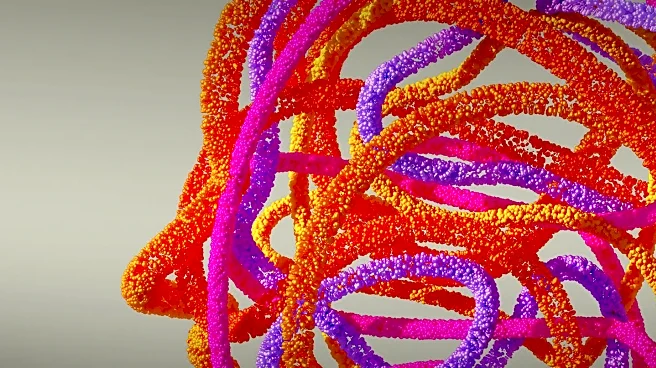What's Happening?
uniQure has announced positive topline results from its pivotal Phase I/II study of AMT-130, a gene therapy for Huntington's disease. The study met its primary endpoint, demonstrating a statistically significant 75% slowing of disease progression at 36 months as measured by the composite Unified Huntington's Disease Rating Scale (cUHDRS) compared to a propensity score-matched external control. Additionally, the high-dose AMT-130 showed significant slowing of disease progression in secondary endpoints, including Total Functional Capacity (TFC). The therapy was generally well-tolerated, with a manageable safety profile. uniQure plans to submit a Biologics License Application (BLA) in the first quarter of 2026, with a potential U.S. launch later that year, pending approval.
Why It's Important?
The positive results from the AMT-130 study represent a significant advancement in the treatment of Huntington's disease, a rare and devastating neurodegenerative disorder. Currently, there are no approved therapies to delay the onset or slow the progression of the disease. The findings suggest that AMT-130 could offer a disease-modifying treatment option, providing hope to patients and families affected by Huntington's disease. The study's success also underscores the potential of gene therapy as a transformative approach for treating neurological disorders, potentially reshaping the treatment landscape for Huntington's disease and similar conditions.
What's Next?
uniQure is preparing to discuss the study data with the FDA at a pre-BLA meeting expected later this year. The company aims to submit a BLA in early 2026, with hopes for a U.S. launch of AMT-130 later that year, contingent on regulatory approval. The therapy has been granted Breakthrough Therapy designation and Regenerative Medicine Advanced Therapy (RMAT) designation by the FDA, which may expedite the approval process. Continued monitoring and analysis of patient data will be crucial to confirm the long-term efficacy and safety of AMT-130.
Beyond the Headlines
The development of AMT-130 highlights the growing role of gene therapy in addressing unmet medical needs, particularly in the field of neurodegenerative diseases. The study's results may encourage further investment and research into gene therapies, potentially leading to breakthroughs in other conditions. Ethical considerations regarding gene therapy, such as accessibility and long-term effects, will need to be addressed as these treatments become more prevalent.









